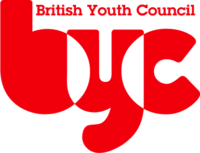One of the most effective pillars of our successful 2017 General Election campaign in Ipswich was our targeted and school-specific information on the real-terms cuts to school income proposed in the Tories’ so-called “Fair Funding” proposals. But while I gained a great deal from standing with Labour campaigners outside many of the Primary Schools in Ipswich and meeting the parents who were angry about the attacks on their children’s education, the most enjoyable day of the whole campaign didn’t involve parents at all.
Angela Rayner visited Ipswich and together we witnessed democracy in action. Sidegate Primary School organised a school election. The three classes in the 5th year acted as political parties, selected leaders, wrote manifestos, made party political broadcasts which were shown to the other children, and we were invited to their hustings at which the rival candidates for “School Prime Minister” spoke to the other children and took questions on their platforms. And the platforms were real platforms – the school fund has made money available so that the new “School Prime Minister” can fulfil the practical and fully-costed pledges she made in her campaign – so very different from the real Prime Minister! Despite feeling extremely tired by that time, I was thrilled to be given a personal guided tour of the school fete by the newly elected Prime Minister on the Saturday morning after my own election as MP for Ipswich.
This level of engagement is unusual for primary schools, but it is becoming more usual in secondary schools, and quite rightly so. More and more secondary schools are holding elections for school councils and genuinely empowering their school council members to have a real effect. Learning about democracy is crucial for all of our children and young people, but actually participating in it themselves is, I believe, a far more effective way of embedding the concepts of democratic decision-taking and of voting for representatives and holding them to account.
But how much more seriously teenagers would take such democratic engagement if they were themselves about to vote in real elections for their local Borough Council or Member of Parliament. It is often said that the electorate were more informed about the issues in 1945 than ever before, because prior to demobilisation so many servicemen and women took part in discussion groups and classes in history and politics. Above all, they were able to discuss the issues amongst themselves, and were not dependent on opinions fed to them through the mainstream media.
The same dynamic applies in schools. We know that if young people vote at their first possible election they are likely to carry on voting. We also know that a majority of under-25s still do not vote at all. If most young people cast their first vote while still at school, the level of engagement and support they would have during the election period, and the extent to which they could discuss the issues and make a decision based on something other than the Sun Editorial or on the views of their parents, would be massively enhanced. And the likelihood is that, having voted for the first time in a situation where their classmates are also voting and will encourage them with a level of group expectation, they will then continue to vote once they are out in the world on their own.
I believe by introducing votes at 16 we could reverse the trend for lower and lower turnout levels, and come to expect the proportion of teenagers and twenty-somethings who regularly vote to be as high – or higher – than their parents. But even more importantly, I believe that enabling the first vote that people make to be within the context of education, we will start to finally break away from the superficial tribalism that has characterised twentieth-century democracy, and forge a new democratic relationship with the voters which is based on them actually thinking about the issues before voting.





